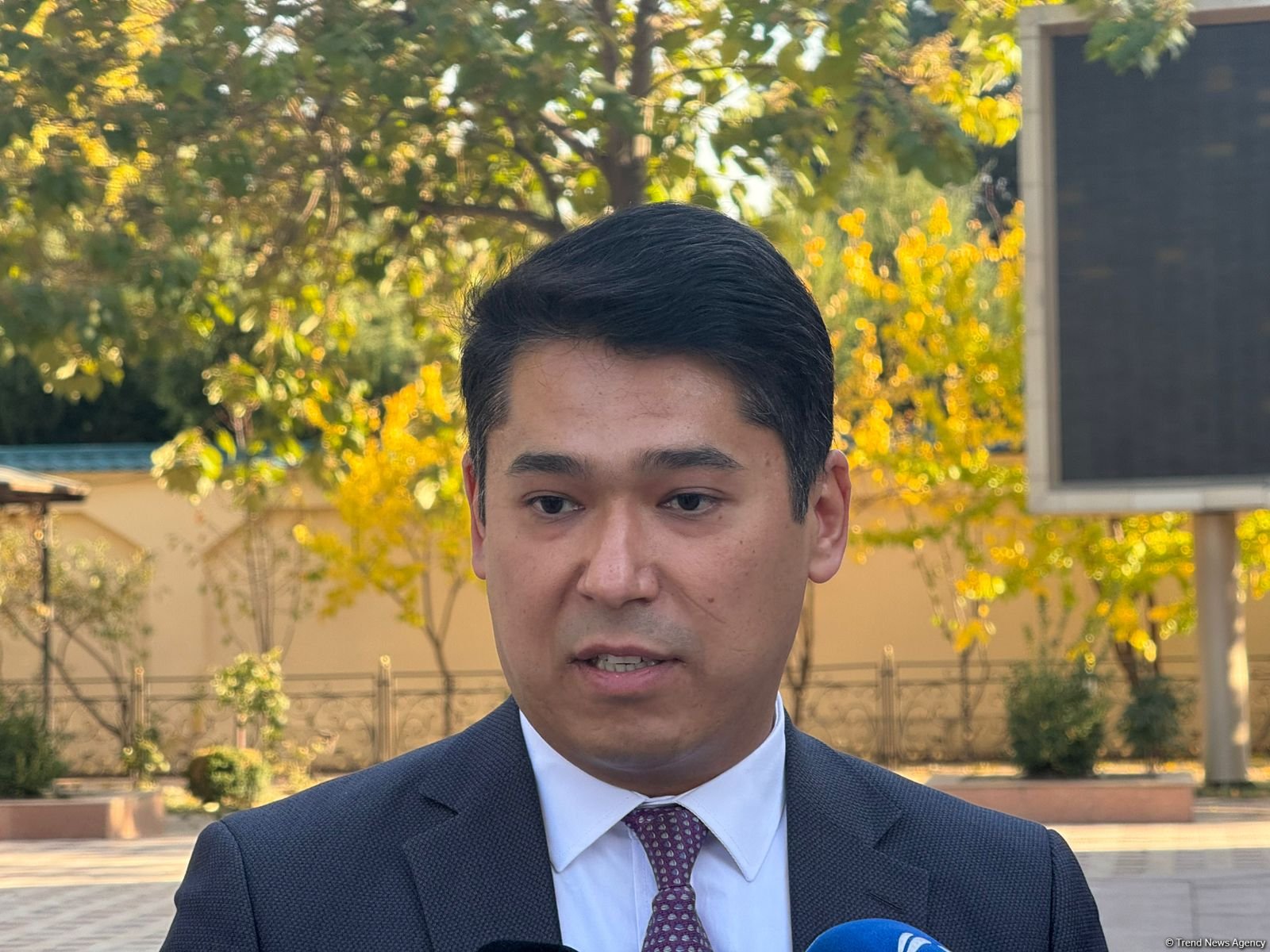BAKU, Azerbaijan, November 16. Azerbaijan has the potential to become a key partner for Uzbekistan in exporting energy resources to international markets, Hikmatjon Ibragimov, Head of the Center for Energy Geopolitics at the University of World Economy and Diplomacy in Uzbekistan, told Trend.
Ibragimov noted that one of the most promising areas of cooperation between Azerbaijan and Uzbekistan in the energy sector is strengthening collaboration in oil and gas transportation, as well as joint work on developing export routes.
“Azerbaijan, with its strategic geographic location and developed infrastructure, can become a key partner for Uzbekistan in accessing international markets, particularly the European Union,” Ibragimov said.
He also highlighted the potential for cooperation between Baku and Tashkent in the development of renewable energy.
“Both countries are actively investing in solar, wind, and hydro power. There is significant potential for joint projects in construction, technology, and knowledge exchange,” Ibragimov said.
The expert added that modernizing energy infrastructure is another important aspect of bilateral cooperation. This includes sharing technologies and expertise in upgrading power plants, transmission networks, and distribution systems to improve efficiency and reliability.
In the long term, he noted, hydrogen energy could also become an important area of development.
“Both countries can jointly explore and develop the potential of hydrogen energy, considering their natural resources and commitment to decarbonization,” Ibragimov said.
He emphasized the strategic importance of the “Green Energy Corridor” between Azerbaijan and Central Asia for Uzbekistan.
“This project opens new opportunities to diversify export routes. Uzbekistan will be able to export its ‘green’ energy—produced, for example, from solar and wind farms—to Europe via Azerbaijan, which serves as an important transit hub,” he said.
According to Ibragimov, the corridor could attract foreign investment to Uzbekistan’s renewable energy sector, as investors will have clearer paths to export produced energy. Additionally, collaboration within the corridor will promote the exchange of advanced technologies in production, transmission, and storage of green energy.
“Participation in this project strengthens Uzbekistan’s energy security by providing alternative markets and growth opportunities. Ultimately, this will reinforce the energy sovereignty of both Uzbekistan and the region as a whole,” he said.
He also stressed that the creation of the green corridor is a key incentive for the development of renewable energy and for achieving greenhouse gas reduction targets. This aligns fully with the strategic goals of both Uzbekistan and Azerbaijan, as discussed during the COP29 conference held in Baku last year.
Ibragimov noted that Azerbaijan’s participation in the 7th Consultative Meeting of Central Asian Heads of State is a significant event, highlighting the growing importance of regional integration and Azerbaijan’s desire to be an active partner in the development of Central Asia.
“This cooperation will create a new format of engagement, further integrating Central Asian countries with the South Caucasus, with Azerbaijan serving as an important connecting link,” he said.
He added that the meeting could strengthen key aspects of energy cooperation, particularly by discussing next steps for the Green Energy Corridor, including specific projects, financing, and technical collaboration.
Ibragimov also highlighted the potential for enhanced cooperation in creating new or modernizing existing energy transport corridors, including subsea electricity transmission cables, as well as strengthening the role of the Middle Corridor.
Furthermore, he suggested that joint investment funds or platforms could be established to finance major energy projects focused on renewable energy development and infrastructure modernization.
The expert emphasized that discussions on unifying regulatory frameworks to attract investment in the energy sector, as well as exchanging expertise on sustainability and energy efficiency, could be another important area of cooperation.
Attention could also be given to implementing digital solutions for energy network management, optimizing both production and consumption.
“Azerbaijan’s participation in such meetings underlines its role as a key player in regional energy policy and opens new horizons for fruitful cooperation with Uzbekistan and other Central Asian countries,” Ibragimov concluded.







